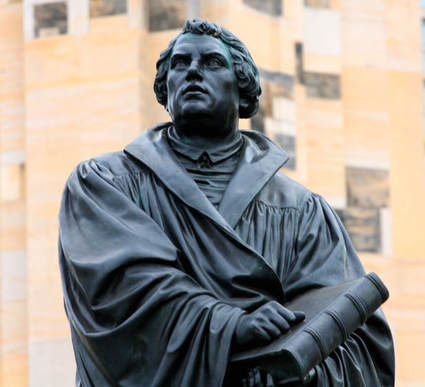But this criticism is based on a lack of thorough analysis of this epistle. The fact that its author is clearly an important figure in the early Church, but one who modestly avoids a direct statement of which of the numerous James he was, suggests the likelihood of his relation to Jesus, and the epistle’s avoidance of mentioning Jesus directly can be seen from this same perspective.
In any case, although Jesus is not named specifically throughout the letter, his presence is clear within the epistle, nonetheless. James presents his readers with some 60 requirements for right behavior in the space of the 108 verses in his short letter – more than one moral principle for every two verses. Where do these exhortations come from? Almost all of them come directly from the teachings of Jesus himself. Interestingly, James focuses most on the teachings of Jesus as given in the Sermon on the Mount. Almost half the material in the Epistle of James shows similarities with almost half the verses in Jesus’ sermon. Consider the similarities evident in the following statements by Jesus and by James:
Oaths
Jesus: “… I say to you, Do not take an oath at all, either by heaven, for it is the throne of God, or by the earth, for it is his footstool, or by Jerusalem, for it is the city of the great King… Let what you say be simply ‘Yes’ or ‘No’; anything more than this comes from evil” (Matthew 5:33-37).
James: “But above all, my brothers, do not swear, either by heaven or by earth or by any other oath, but let your ‘yes’ be yes and your ‘no’ be no, so that you may not fall under condemnation” (James 5:12).
Fruits
Jesus: “You will recognize them by their fruits. Are grapes gathered from thornbushes, or figs from thistles?” (Matthew 7:16).
James: “Can a fig tree, my brothers, bear olives, or a grapevine produce figs? Neither can a salt pond yield fresh water” (James 3:12).
Trials
Jesus: “Blessed are those who are persecuted … Rejoice and be glad, for your reward is great in heaven, for so they persecuted the prophets who were before you” (Matthew 5:10-12).
James: “Count it all joy, my brothers, when you meet trials of various kinds” (James 1:2).
Gifts
Jesus: “Ask, and it will be given to you… If you then, who are evil, know how to give good gifts to your children, how much more will your Father who is in heaven give good things to those who ask him!” (Matthew 7:7-11).
James: “If any of you lacks wisdom, let him ask God, who gives generously to all without reproach, and it will be given him … Every good gift and every perfect gift is from above, coming down from the Father of lights with whom there is no variation or shadow due to change” (James 1:5-17).
Treasures
Jesus: “Do not lay up for yourselves treasures on earth, where moth and rust destroy and where thieves break in and steal” (Matthew 6:19).
James: “Your riches have rotted and your garments are moth-eaten. Your gold and silver have corroded, and their corrosion will be evidence against you and will eat your flesh like fire. You have laid up treasure in the last days…” (James 5:2-5).
These few examples show the almost amazing level of inclusion of the words of Jesus found in the Epistle of James. But we should notice that not a single one of these examples has the identical wording that would show direct borrowing from the Gospel accounts of the Sermon on the Mount (Matthew 5-7) or the parallel Sermon on the Plain (Luke 6:17-49). Rather, the words of Jesus in James indicate the reporting of someone who knew Jesus and his teachings well, but who – as would be the case with James the brother of Jesus – was not present to hear the Sermon on the Mount itself (John 7:5).
Far from not being found in the Epistle of James, the presence of Jesus is seen throughout this letter in the words and core teachings of Christ that James records.




 RSS Feed
RSS Feed
